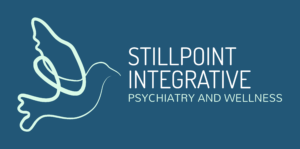Magnesium Glycinate: A Vital Nutrient for Mental Health
Many people overlook a critical component of overall health: magnesium.
This essential mineral is involved in over 300 enzymatic reactions in the body, affecting everything from muscle function to nervous system regulation.
One particular form, magnesium glycinate, has gained recognition for its bioavailability and gentle effect on the gastrointestinal system, making it a preferred option for addressing mental health concerns like anxiety and depression.
What is Magnesium Glycinate?
Magnesium glycinate is a chelated form of magnesium, meaning it is bound to the amino acid glycine.
This pairing enhances absorption in the gut and minimizes the likelihood of gastrointestinal discomfort, a common issue with other magnesium supplements.
Glycine itself has calming properties, making magnesium glycinate particularly well-suited for addressing mental health challenges.
The Link Between Magnesium and Mental Health
Magnesium is vital for brain function and mood regulation. It plays a role in:
- Neurotransmitter Balance: Magnesium is essential for producing and regulating neurotransmitters such as serotonin, dopamine, and GABA, which are essential for mood stabilization, emotional regulation, sleep quality. and emotional well-being.
- Stress Response: Magnesium helps modulate the body’s response to stress by regulating the hypothalamic-pituitary-adrenal (HPA) axis and reducing cortisol levels. Simply put, magnesium has a calming effect on the nervous system, mitigating the body’s stress response and reducing the production of stress hormones.
- Sleep Quality: By supporting relaxation and reducing stress, magnesium helps regulate the body’s internal clock, magnesium promotes restorative sleep, which is critical for mental health.
- Neuroprotection: Magnesium glycinate has been shown to have neuroprotective effects, potentially reducing the risk of neurodegenerative diseases, such as Alzheimer’s and Parkinson’s.
- Mood stabilization: Magnesium glycinate may help stabilize mood, reducing symptoms of depression and anxiety by promoting healthy neurotransmitter function.
Magnesium Deficiency: A Hidden Problem
Modern diets, stress, and certain medications (like diuretics and proton pump inhibitors) can lead to magnesium depletion. Symptoms of deficiency include irritability, fatigue, difficulty concentrating, and increased susceptibility to anxiety and depression.
In fact, studies have linked low magnesium levels to:
- Higher rates of depression and anxiety.
- Increased inflammation, which is associated with many mental health disorders.
Magnesium Glycinate for Anxiety and Depression
Magnesium glycinate is particularly effective for mental health because:
- High Absorption: Its bioavailability ensures that the body receives an adequate supply to restore magnesium levels.
- Calming Effects: Glycine’s soothing properties enhance magnesium’s ability to reduce anxiety and promote relaxation.
- Reducing Inflammation: Chronic inflammation is a known contributor to depression, and magnesium’s anti-inflammatory properties may counteract this.
Research has demonstrated the efficacy of magnesium glycinate in supporting mental health. A study published in the Journal of Clinical Psychopharmacology found that magnesium glycinate supplementation reduced symptoms of anxiety and depression in patients with chronic stress. Another study published in the Journal of Affective Disorders found that magnesium glycinate improved sleep quality and reduced symptoms of insomnia in patients with depression.
Additional Benefits of Magnesium Glycinate
Beyond mental health, magnesium glycinate offers other advantages:
- Supports muscle relaxation and reduces cramps.
- Promotes cardiovascular health by regulating blood pressure.
- Enhances bone health by aiding calcium absorption.
How to Incorporate Magnesium Glycinate
Magnesium glycinate is available in capsule, powder, and tablet forms.
The recommended daily allowance (RDA) for magnesium varies by age and gender, but for most adults, it ranges between 210–420 mg per day.
Always consult a healthcare provider before starting any supplement to ensure the correct dosage and avoid potential interactions with medications.
Conclusion
Magnesium glycinate is a safe, effective, and natural way to support mental health and overall well-being. By addressing common deficiencies, it helps lay the foundation for emotional resilience, improved mood, and reduced stress.
If you’re considering magnesium supplementation as part of your mental health care, feel free to contact us at Stillpoint Integrative Psychiatry and Wellness. Together, we can create a personalized plan to support your mental and emotional health.
Related Articles: The Science of Sleep
Understanding Anxiety: A Holistic Approach
Understanding Depression: An Integrative Approach to Healing

